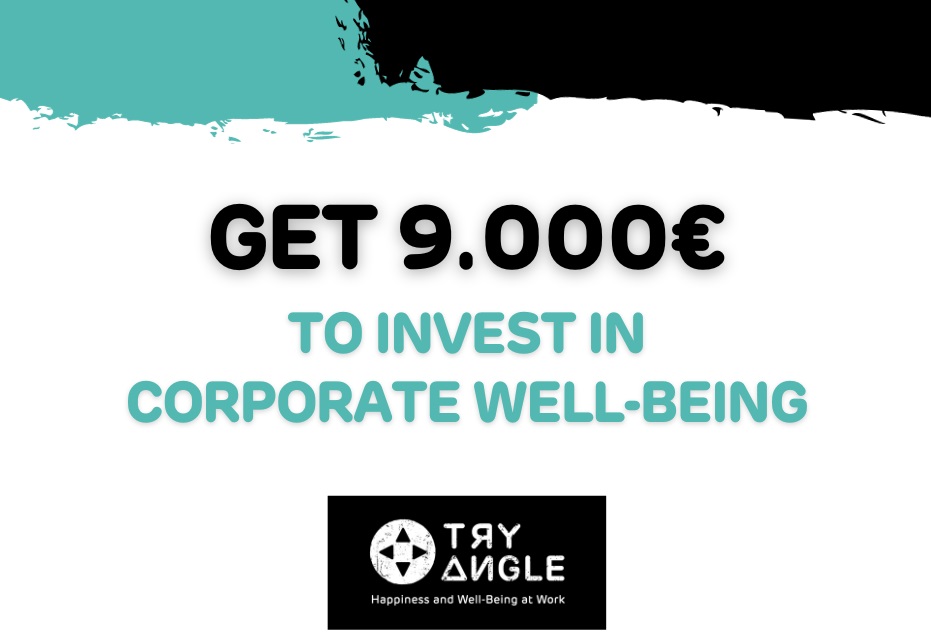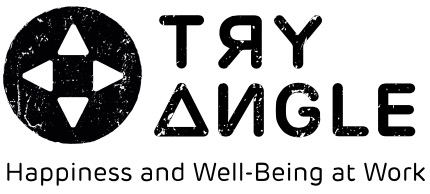WORKABILITY VOUCHERS
*** Extended til 31.07.2024 ***
Invest in ‘workable work’ and the well-being of your employees
and receive a subsidy of up to 9,000€ through the workability vouchers.
On this page you will find all useful information about this Flemish subsidy.

Purpose of workability checks (WBC)
This subsidy was created to both identify and improve workability in organisations with regard to
– the work post (working environment and workplace)
– the work organisation (policy and procedures, way of working (together), …)
Workable work covers different components such as resilience to stress and stronger motivation, learning opportunities and work-life balance. Psychosocial well-being and the current pandemic is also specifically mentioned:
– Workability and safety for workers, with emphasis on the changed context due to the Corona pandemic
– Competence building to feel supported in a changed work context
– Psychological well-being of workers and employer
What is it exactly?
It is a subsidy of 60% of the total budget of an appropriate project, with a maximum of €9,000. It may involve
– The execution of some sort of monitoring or scan
– and/or guidance and advice (policy consulting, strategic advice, …)
– and/or improvement of activities (coaching, training, actions,…)
Which organisations are eligible?
– Enterprises in Flanders (both SMEs and large enterprises) with at least 1 employee
– Both profit and social profit sector


What are important watch-outs?
– Don’t wait too long: Are you thinking about investing in well-being at work? Then take action now. After all, the total budget for 2024 is limited: first come, first served.
– Deadline: The application can be submitted until 31.07.2024. Each project has a maximum duration of 6 months from the date of application.
– De-minimis conditions: There is a limit to the governmental aid a company can receive over three years (up to a maximum of €200,000).
– No double financing: the same project cannot be subsidised by different subsidy setups.
Here is an overview of many of the concrete questions we have received recently in connection with the workability vouchers.
Still have questions? Do not hesitate to contact us! We are happy to advise and assist you.
Q&A
Unlike the “KMO-portefeuille”, there is no limit to the size of the organisation for the workability checks. The only condition mentioned regarding the number of employees is having at least 1 employee.
No, they are not eligible for this subsidy.
Non-profit organisations do not qualify for the subsidy, but organisations within the social profit (or local service) economy, such as customised work companies and social and sheltered workshops, actually do. For clarity on specific cases, it is best to contact the Flemish Government itself (werkbaarheidscheque@vlaanderen.be).
The workability cheques are an initiative of the Flemish government and therefore only apply to organisations with an acceptable legal form, who are established in the Flemish Region.
No, workable work, working on well-being at work or corporate well-being are much broader concepts that cover much more than, for example, exercise and healthy nutrition. Aspects such as dealing with stress, mental well-being, mindset, a healthy workplace (at home), connection and communication with coworkers, optimal team management and cooperation, etc. also qualify for support with the WBC because they each contribute in their own way to the motivation, resilience and productivity of employees. In addition, organisations can work around these topics both strategically (and request guidance in outlining a well-being policy), but also use it for operational support or training of managers, or even offering specific tools, workshops and the like to employees.
No, the workability vouchers were extended in 2020 to include activities to improve workability. Of course, it is still possible to make combinations (scan + actions). And even though a scan is recommended to take targeted action, specific well-being activities for improvement are eligible as well.
The government’s website indicates that the WBC are not eligible to meet legally required obligations. An exception is made only specifically for scans, action plans and actions that serve to cope with the changed circumstances as a result of corona – affecting all organisations in all areas.
Since it is a subsidy of 60% of the total amount of a project, excluding VAT, there is an absolute maximum of €9,000 per organisation (judging per VAT number). This means that a project costing €15,000 would result in a maximum subsidy amount of €9,000.
You may submit a total of 3 different projects, which can – combined – lead to a total grant of up to €9,000.
Please note that subsidies are considered at the level of the enterprise (VAT number) and not at the level of the establishment. So an organisation with several branches in Flanders under the same enterprise number are grouped together and will need to adhere to the maximum subsidy of €10,000.
No, workability vouchers do not have retroactive effect. It only applies to projects that were applied for in advance.
Yes, you can find it here: list of approved service providers of the SME portfolio or service providers with a quality registration of Work and Social Economy.
No, it’s a fairly simple procedure (read more about it here – in Dutch) and Tryangle is happy to help out.
As long as a budget is available, applications are generally accepted in accordance with the conditions of the call. As far as content is concerned, this means that a clear link needs to be demonstrated between the chosen activities and the components of workable employment, as defined by the Flemish Government (stress, motivation, learning opportunities and work-life balance). Our Tryangle well-being interventions that offer support for (physical and mental) well-being and psychosocial well-being therefore certainly qualify and, if necessary, we offer help in formulating the application.
The Flemish Government does its utmost best to approve applications as quickly as possible (approximately three weeks), but this is certainly not always possible. We therefore recommend – due to the limited project duration of six months – not to wait and to start implementing strong projects (likely to be approved) immediately after the application.
Once you have submitted your invoice, the subsidy is usually paid within a month. Please note that this is pre-financing: you pay the full invoice to the service provider, the government then refunds the subsidised amount to you.
Our advice: Don’t wait too long! There is a limit of 3.000.000€ available as a total budget of the Flemish Government. Up to now, the cheques have been underused and the need for wellbeing interventions is higher than ever, hence our call to take action. But… when the money runs out, it runs out. The current call has been extended by the Flemish government into 2024, so new applications can be submitted until 31.07.2024.

Example projects
We would like to inspire you with some example projects that have already qualified for subsidy by the workability vouchers in the past:
Resilience barometer + workshops and training
An employee survey on physical and mental well-being to define both strengths and working areas. Based on these results, next steps to further increase well-being can be determined. Through insights into the right drivers, we can develop a clear action plan and concrete interventions with regard to:
– Supporting managers with knowledge of the stress mechanism and stress prevention among team members, but also with regard to supporting the reintegration of absentees.
– Raising awareness and informing employees on insights and tools for more resilience.
Example 1: Training and workshops on physical and mental health
Get support to sustainably increase mental and physical health, well-being and connectedness at work. This can be under the format of:
– Training for managers: tips around resilience and self-care, communication, connection, stress, anxiety, conflict, teamwork;
– A health scan and programme for employees that offers advice and guidance on a healthier lifestyle for greater resilience;
– Workshops for insights and tips around stress, mindset, fear, pessimism, etc. to make these topics easier to talk about and to teach the right coping skills (for both managers and employees).


Example 2: Support for time- and location-independent work
Wellbeing interventions for both managers and employees with workshops covering insights and tools to learn how to manage negative stress and increase resilience, specifically from the perspective of individuals who work from home as well the impact of remote teamwork on the team as a whole. This covers a wide array of topics such as (digital) communication and remote cooperation, cultivating involvement and solidarity, work/life balance, leadership for remote teams,…
Example 3: Questions regarding work organisation in times of a pandemic
– Support for HR and managers in guiding employees who are worried, who are having a hard time or who do not feel well
– Working on mindset, positivity and hope: How do you support your employees in dealing with change and uncertainty?
– Motivation and engagement: How do you keep employees motivated in challenging times?
– Stimulating team connection and involvement
– Leadership through change
Watch a webinar recording about the employability checks (in Dutch)
Watch a webinar recording about the employability checks (in Dutch)
For the most recent updates and information about this programme, we refer to
the website of the Flanders Government and/or the Vlaio website (both in Dutch).
You can also visit this website for more information about ‘workable work’.
